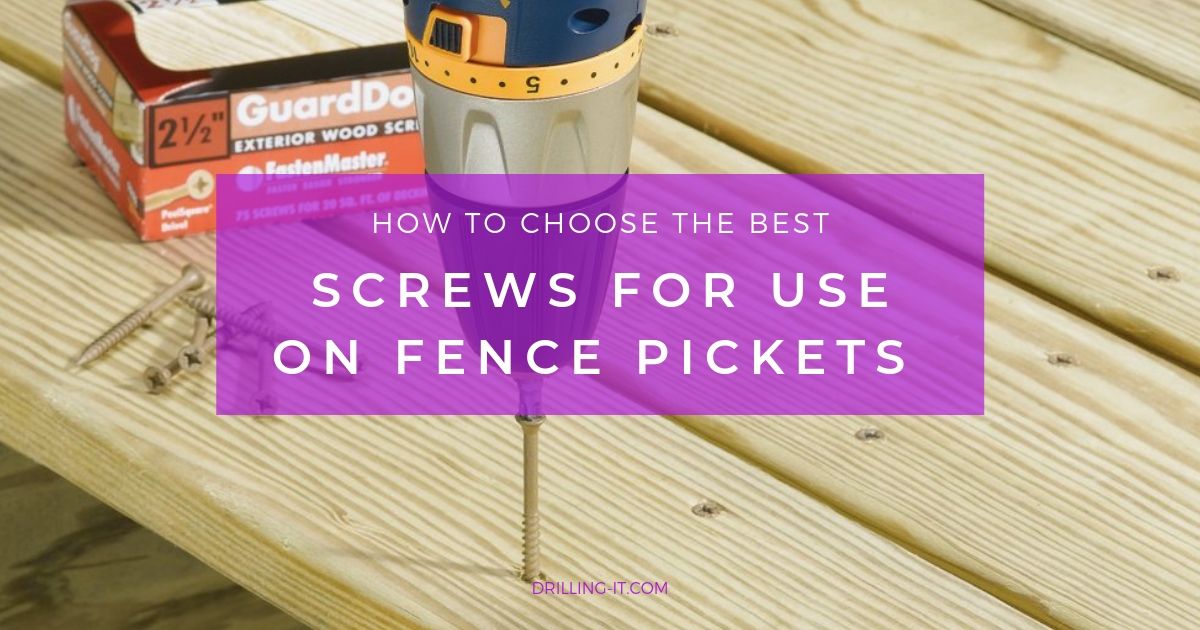78+ Nails Vs Screws For Fence
Galvanized staples are good for attaching wire fencing to fence posts. In addition screws are typically more expensive than using nails.

Nails Screws Deck To Screw Or Not To Screw Rocky Mountain Forest Products
Larger nail heads provide more striking area while smaller heads are best for finishing.

Nails vs screws for fence. Using the wrong type of nail for building a wood fence is like using your iron to heat up pizza. Spiral threaded and ring shanks provide extra holding power. Therefore if youre looking for optimum strength screws may be the best choice.
The list of nails available at your local hardware store is endless and each nail is designed for a specific purpose. Nails may speed up the construction process and can withstand people leaning or pulling at them while screws may break due to the twisting pressure applied against the joints. While nails have more flexibility screws have more tensile strength.
Nails have a tendency to be over time be pushed out of the wood by the expansion and contraction of the fibres exposing them more and subject to greater corrosion. Nails are definitely more affordable than screws but they have the major drawback of growing looser over time. I wouldnt like the head of the screws to be seem too much and I dont want them rusting over the winter.
Generally nails can be quickly and easily hammered into a wooden fence with little resistance from the wood itself. Exterior screws are available with square and Phillips heads that are less likely to strip. I know most people install a fence using nails but I dont have a nail gun and a total of 60 boards plus rails.
Screws Vs Nails for Fence While both can secure the pieces together the right size screw is arguably better compared to a nail. Nails are faster than screws to install meaning less labor for you or your builder which may translate into lower installation cost. In the end though screws are more effective and last longer.
Fences are subject to constant difference in moisture levels so essentially screws are best to use. This makes screws better for projects when. I am considering to use screws which type of screws would you use.
Nails can be much faster to install which means less labor for you or the person you hire. However fencing nails are more likely to loosen up over time. This is because the screw will not only hold better it will help prevent the boards from warping.
Screws allow the wood to expand and contract again but remain fixed. There are two schools of thought when it comes to building a fence - Nails or Screws. Nails in the past has meant issues with age or pressur.
While research shown that nails are better for the installation of a wood fence using the right type of nail is paramount. More importantly screws tend to stay in place while nails move around. Nails are better for building quickly and under a tight budget but are not as strong.
However nails are more likely than screws to grow loose over time. While they may work for temporary fencing errors are harder to correct and repairs are more likely to result in stripping of the wood. Between screws and nails screws are more expensive but stronger making them better for heavy-duty fences.
Tensile strength refers to a materials ability to resist breaking under pressure. Screws take more time often requiring holes to be drilled before the application of the screw. A one-pound box of 10D three-inch galvanized nails will run you about 6 while a one-pound box of three-inch deck screws will cost you about 10.
Screws should never be used when installing a wood fence. Additionally they dont weather as well. To decide which is best assess the fences purpose environment and budget.
Screws are generally more expensive than nails. Staples are much quicker than nails although if you blunt the tip of the nial with your hammer before putting it in it will be much less likely to split the wood. They also ensure easier rework should you need to replace a damaged picket.
However screws are easier to remove making a picket replacement a less stressful event. That cost difference can be significant when you figure you might need upwards of 20 pounds of screws for a 400 square-foot deck. If you look at a nail and compare its thickness to that of a staple you will see that there is much more material there.
Screws on the other hand secure the fence better than nails. They also secure the fence better while nails may loosen over time.
